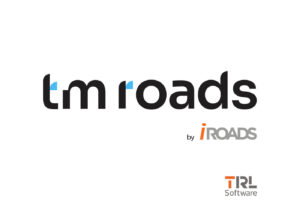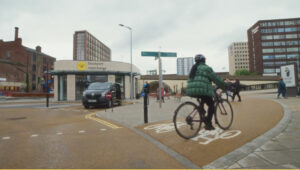A case study by Transport for Greater Manchester and TRL is highlighting how opening up and sharing data can dramatically improve traffic management in a city by “doing more with less”.
The two organisations collaborated on a solution in response to the Department for Transport’s competition to promote the sharing of local authority transport data in an attempt to explore the benefits.
The project concentrated on maximising the benefits of the data available from the current infrastructure including traffic counters, CCTV, Bluetooth sensors, video analytics and third-party content such as floating vehicle data from Waze.
They found that better fusing this data into the software product UTC, powered by SCOOT 7, efficiently managed traffic across both pedestrian crossings and junctions. This has led to implementation of Green Light Optimal Speed Advice, enhanced traveller information, identification of congestion hotspots, better fault management and increased collaboration with commercial partners.
The use of SCOOT has been demonstrated to reduce vehicle emissions through the smoothing of journeys with fewer stops and delays experienced. SCOOT Open data is a major step towards being able to provide a robust and updated evidence base for decision making as emissions, air quality and the environment become critical.
“Actually, opening up with this data started to start multiple conversations,” commented TRL’s Chief Technologist Chris Kettell. “They said that it is really interesting and they didn’t know it was possible. I would say a key part of the project is about dispelling not necessarily misinformation but misconceptions around what data can be made available. And the barriers that are perceived, and commonly held.”
Kettell explains that the approach supports a strategy where everything is becoming even more data driven, adding, “The fundamental question that I asked in the outset from this is: ‘is the best use of transport data currently being made?’ and unfortunately, the answer to that is a big resounding no – some of its walled gardened, some of it is people just don’t even know about let alone of being behind a proprietary system somewhat.” He says this is important to understand as the amount of data available grows, explaining that there is “Going to be this massive influx of new data that’s available, and that’s going to inform and change things such as traffic control.”
Researchers say the next steps are to build on what they have achieved, ensuring the best use of data that is, and could be, available now, mapping future data sources and use cases, and making A sustained effort to realise the benefits and the sharing of best practise.
“An open data first approach, delivered through our Open Data Developer Portal in UTC, drives innovation, and helps to remove vendor lock-in, concluded Subu Kamal, Head of Product Management, TRL Software. “As a progressive authority, TfGM understands this fully and is leading change in the industry by adopting open platforms like TRL’s UTC”.
Read the full study here.
(Picture – TRL)
























